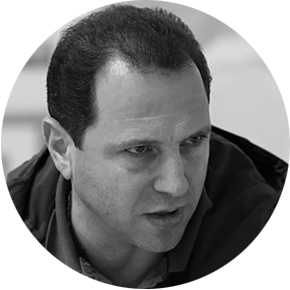Exclusive interview of former Defense Minister of Armenia Davit Tonoyan to Mediamax
- Your famous statement “New war, new territories” has been discussed in and outside Armenia since the end of the war. In particular, the Russian Foreign Minister also mentioned it at a press conference on January 18. Do you have regrets about it?
- The statement made during a meeting with the U.S. Armenian community about a year and a half ago was a response to the statements of Azerbaijani military-political leadership to resolve the Artsakh issue through war, which were “substantiated” by the futility of negotiations. Yes, the statement was emotional, but I don’t regret it.
No matter how much Aliyev and some Armenian politicians insist, that statement could not be a reason for the failure of the negotiations and resumption of the war. By the same logic, the war could have started every day, since the leaders of Azerbaijan were always talking about the military solution of the issue. Moreover, for decades the world has failed to “notice” Aliyev’s statements that “Yerevan was the historical territory of Azerbaijani.”
It should be clearly stated that Azerbaijan rejected the peaceful political settlement of the conflict. The initiator of the war and the disruption of the negotiation process were Ilham Aliyev and Turkey that had provoked and supported him in many ways.
I strongly believe that in conditions of geographical boundaries occupied by the Armenian Armed Forces after 1994, the reinforcement of military positions, the organization of combat duty and the armament of troops with modern weaponry did not solve the main task of ensuring the security and the economic development of Armenians of Artsakh.
What was the ultimate goal of retention of the territories delimited by above-mentioned boundaries? The restoration of historical justice, provision of long-term and sustainable security of Armenians of Artsakh and the Republic of Armenia, economic development, or creation of favorable conditions for negotiations on the return of territories in exchange for the internationally recognized status of Artsakh?
Certainly, neither the first, nor the second, nor the third. In today’s geo-political conditions with current boundaries and defensive posture existing, issues of long-term and sustainable security and economic development would not have been resolved, and the failure of the negotiation process would have sooner or later led to war.
Therefore, within the framework of defense and foreign policy pursued over the last 26 years, within the limits of existing social and demographic-economic capabilities, the fourth has been ensured in non-war conditions - the continuity of the “beneficial” settlement process for the Armenian side.
- You have stated that in case of war the Armenian side should move hostilities to the adversary’s territory. In particular, you have stated that “in case of necessity our attack groups may create a chaos in the back of the adversary.” Why did this not happen?
- Yes, the formation of these assault units and their training to operate in enemy territory, the equipment of Armenian Armed Forces with multifunctional fighter jets, various UAVs and high-precision missile systems, as well as the development of intelligence and special forces capabilities would have eventually led to conceptual changes.
However, the “2018-2024 Modernization Program for the Armenian Armed Forces” approved by the Armenian President’s decree of February 17, 2018, Armed Forces Development Plan
edited and adopted by the Security Council in 2019, initiated Strategic Defense Review had not yet been fully implemented. We didn’t have time to prepare for a “contactless” was with the use of 5th generation weapons.
In the Vision on the priorities for the development of the defense sector and the Armed Forces published on June 9, 2020, I mentioned that a large-scale rearmament of the Armed Forces had begun, ranging from small arms to long-range missile systems and multi-functional fighter jets. However, we were at the beginning of the road.
The rearmament was aimed at recruiting the subdivisions of the Armed Forces with such mobile, modern and high-precision weapons that would operate in the field of the automatic command and control and would ensure the decentralized independent actions of subdivisions. I am convinced that we had no alternative but to go to war in this format.
All the statements were made taking into consideration the predictability of regional developments and possible actions of the enemy, but with an inadequate assessment of the risks of direct involvement of Turkey, mass involvement of mercenaries, and complete blockade of supply routes.
If my conceptual and program approaches are assessed as “pompous” and “arrogant”, then the incompetent, spinelessness and melancholic manifestations of some Armenian politicians are a security threat to our people. We have lost an unequal battle in all respects, but that does not entitle anyone to play with the national dignity of our people. This political nightmare that psychologically exhausts people needs to stop, and instead of injecting a complex of inferiority, we have to analyze the mistakes, learn the lessons and work. We have paid an extremely high price. Thousands of young people have given their lives for the sake of our Homeland and protection of our national interests, and defeatist speeches disrespect their memory.
- Many people claim that having worked with Armenia’s second and third presidents for about two decades, you committed “treason” by agreeing to be part of Nikol Pashinyan’s government.
- Agreeing to assume the post of the Minister of Defense in spring 2018, I was guided exclusively by a sense of duty. I have worked for the good of the Republic of Armenia, and those “many people” you’ve mentioned either have stereotypes about public service, especially in areas of defense and security, or are driven by other motives and interests. I am inclined to consider the second option, because I see how diligently and consistently fabrications about me and my family originating from Azerbaijani Telegram channels are brought to Armenian media.
As for relations with former and current officials, they are strictly personal and as a rule turn into gossip when assessed from outside.
- For two and a half years, the Armed Forces have often received direct or covert blows from ruling force or NGOs and other circles with close ties to them. Why didn't you publicly respond to them?
- I am a supporter of practical and flexible method of change management. One of the main factors hindering the process of required and necessary change is that people by nature are inclined to inertia. They resist change because it can make them uncomfortable. We live in Armenia, where “face saving” plays a big role in interpersonal relations, and I preferred to work patiently with all parties, expecting a change in mindset or perception from both government partners and representatives of NGOs.
- Chief of General Staff Onik Gasparyan stated that at the meeting of the Security Council on June 12, 2020, he said that “our adversary is not only Azerbaijan, but also Turkey. Therefore, Armenia cannot effectively resist the combined military potential of these states, and it is necessary to direct all the political and diplomatic potential to avoid or at least postpone the war.” What was your position at that Security Council meeting?
- The coordinated and synchronized approach of the Ministry of Defense and the General Staff was reported at the meeting.
- In that case, how adequate do you think the PR campaign of Tavush July battles was, which could not but cause additional concern to Azerbaijan and Turkey?
- The “PR-campaign” and “additional concern to Azerbaijan and Turkey” were the last things representatives of the Armed Forces were interested in. But the unbalanced attitude of Aliyev and the Azerbaijani elite, followed by rather harsh “brotherly” assurances of Turkey to punish Armenia for “not knowing the regional realities and destabilizing the situation”, was unexpected for us.
- Onik Gasparyan also stated that on the fourth day of the war he noted that it was necessary to take measures to stop the war within two or three days, otherwise we would have more unfavorable conditions for the negotiation process every day that follows. What was your position?
- The Ministry of Defense and the Armed Forces have honestly and selflessly done more than it was possible in order to win. And the analysis made on the basis of General Staff’s cold calculations was coordinated with me.
- There are many publications and evidences that the situation in the Defense Army was chaotic, and unauthorized people participated in the planning of military operations. How could a situation like this occur?
- I believe that when the internal political situation stabilizes, an investigation will be launched and all similar questions will get their answers.
- What was your biggest personal omission during this war?
- During the war, I failed to overcome the uncertainty in PM-Defense Ministry-General Staff command order and the obstacles arising from it. In particular, these are issues related to mobilization, the role and functions of the Security Council, the functions and official relations between the Armenian Armed Forces, the Defense Army and President of Artsakh, the organization of self-defense in Artsakh and the evacuation of the population.
Under the new Constitution adopted in 2015, the Minister of Defense is actually excluded from the process of planning and conducting military operations during the war, since these powers are vested in the Commander-in-Chief and the Chief of General Staff of Armed Forces. After the constitutional amendments, an attempt was made to settle this ambiguity in the law “On Defense”, which, as life has shown us, was not enough.
Nevertheless, as I said in my November 20 address, I am ready to assume my share of responsibility.
- The issue of whether Russia supported its ally Armenia was and is discussed a lot during the war and in the post-war period. What is your assessment?
- Throughout the war, I was in constant contact with Russian Defense Minister Sergei Shoigu. There were days when we talked several times a day on the phone. For obvious reasons, I am not going to open all the brackets, but I can definitely say that in conditions of war Russia has done its best in terms of fulfilling its allied obligations. Moreover, in addition to purely defense topics, thanks to our constant working relationship with Russian Defense Minister, we have managed to resolve a number of other important issues.
Ara Tadevosyan talked to Davit Tonoyan




















Comments
Dear visitors, You can place your opinion on the material using your Facebook account. Please, be polite and follow our simple rules: you are not allowed to make off - topic comments, place advertisements, use abusive and filthy language. The editorial staff reserves the right to moderate and delete comments in case of breach of the rules.